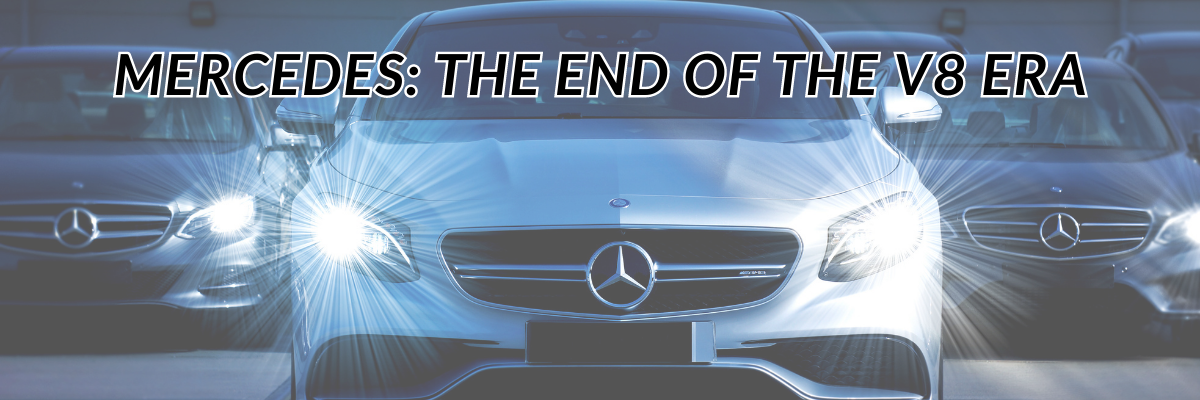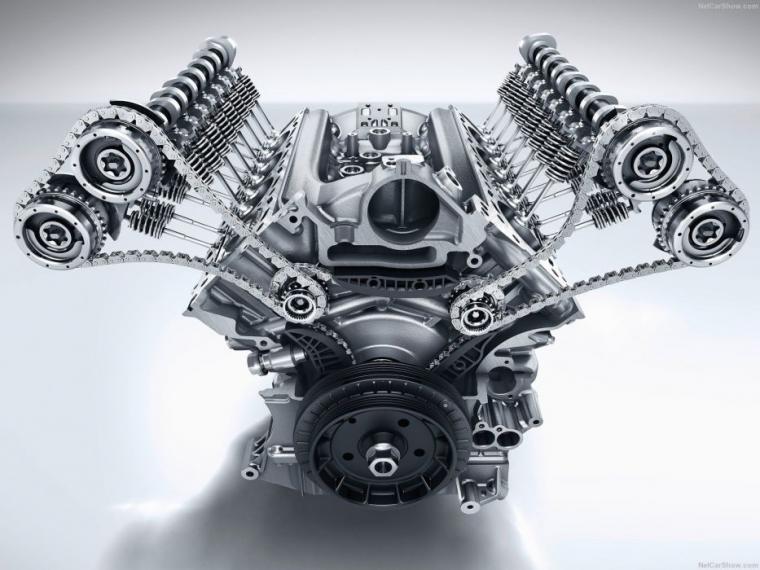Why Mercedes Stopped Making V8s: A Shift Toward a Sustainable Future
Posted by Elyse Cruz on Aug 20th 2023

Mercedes-Benz, one of the world's premier luxury automobile manufacturers, has built its legacy on innovation, performance, and style. Over the years, the V8 engine became synonymous with the brand’s identity, representing both power and prestige. However, in a bold move, the company decided to phase out the production of V8 engines. Here's an exploration of the reasons behind this significant decision.
Some models, including the C 63S made a comeback in 2023 with the 4.0L twin turbo V8. Earlier this month there was some speculation that Mercedes would be bringing back the V8 for the non AMG C-Class and E-Class come 2026. Unfortunately these rumors turned out to be unfounded. Benz confirmed that the C-Class and E-Class models would not be making the return with a V8 - and that any claims that alleged otherwise are “purely nonsense”. To all our gas guzzler tax-loving gear heads - you’ll just have to settle for BMW or Audi’s eight cylinder in the meantime.
1. The Push for Electrification
The global automotive industry is undergoing a transformative shift from traditional combustion engines to electric powertrains. With governments around the world implementing stricter emission standards and incentivizing electric vehicle (EV) production, automakers are compelled to prioritize electric over internal combustion engine (ICE) vehicles. Mercedes, with its commitment to innovation, is leading the charge in this domain. Their ambition to become a fully electric brand by the end of the decade necessitates a gradual phasing out of gas-guzzling V8s.
2. Environmental Concerns
The impact of climate change, coupled with the deteriorating air quality in many urban areas, has prompted automakers to rethink their strategies. V8 engines, known for their power and performance, also come with significant carbon footprints. By discontinuing the production of these engines, Mercedes is aligning with a broader mission to promote sustainability and combat climate change.
3. Evolving Consumer Preferences
Modern consumers are becoming increasingly environmentally conscious. Many are choosing vehicles based on their ecological footprint rather than sheer power. As a result, the demand for greener, more efficient vehicles has surged, causing brands like Mercedes to recalibrate their production priorities.
4. Technological Advancements in EVs
Electric vehicles have seen rapid advancements in technology, performance, and range. High-performance electric powertrains are now capable of delivering speeds and acceleration comparable to, or even surpassing, traditional ICE vehicles, including those powered by V8 engines. As such, Mercedes recognizes that the future of performance driving lies in electrification.
5. Economic Considerations
The economies of scale associated with EV production are becoming more favorable as the technology matures and mass adoption increases. By focusing on electric powertrains, Mercedes can streamline its research and development, benefit from reduced production complexities, and realize cost savings in the long run.
6. Regulatory Pressures
Many countries are introducing stringent emission norms and setting deadlines for phasing out ICE vehicles entirely. For instance, countries like the UK, Norway, and the Netherlands have established timelines to end the sale of new gasoline and diesel cars within the next decade. By discontinuing V8 production now, Mercedes ensures its compliance with future regulatory landscapes.

Conclusion
The discontinuation of V8 engines by Mercedes marks the end of an era but heralds the beginning of another. As the world becomes more attuned to environmental concerns and technological advancements reshape the automotive industry, companies like Mercedes are evolving to remain at the forefront of change. By prioritizing sustainability and innovation, the brand is not only securing its future but also playing a pivotal role in driving the industry toward a greener, more efficient future.
It's essential to note that while the mainstream C-Class & E-Class models might not be returning with a V8, Mercedes has traditionally offered V8 engines in some of the higher-end AMG-branded versions of the C-Class, like the C63 AMG. However, even within the AMG lineup, there have been discussions about downsizing and hybridizing engines to meet regulatory and performance goals.

